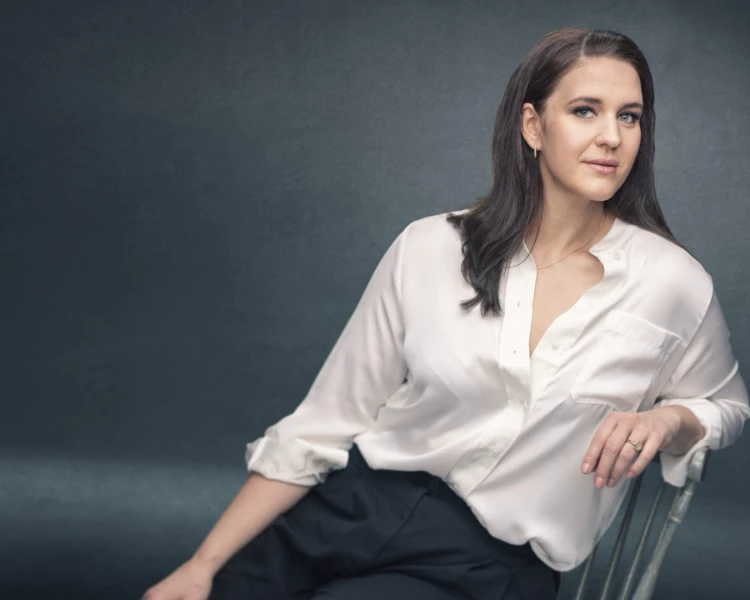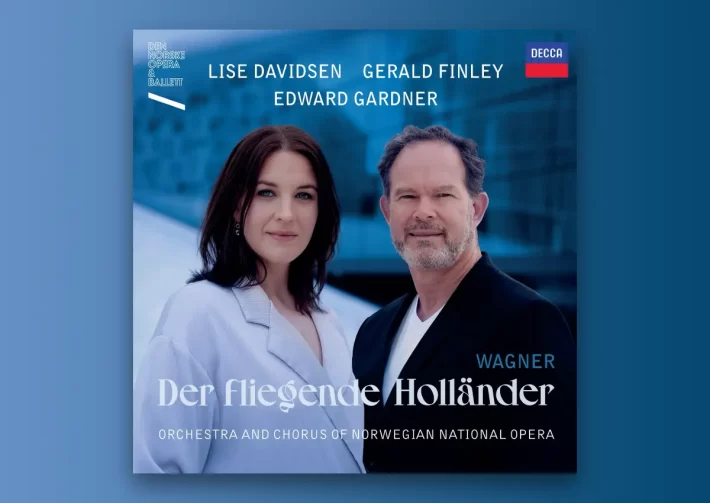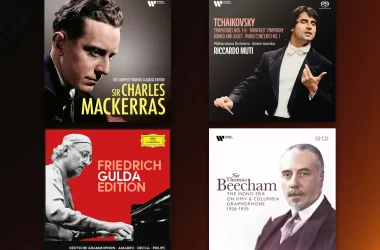Wagner’s “Der fliegende Holländer” has seen numerous acclaimed interpretations on record, including notable versions by Karajan, Klemperer, and Solti. Yet right from the opening bars, it’s clear Edward Gardner’s new recording brings a particularly fresh and immediate take to the opera.

The Overture is exhilarating and propulsive – there is a clear chemistry between Gardner and his orchestra (this is his first recording as their new Artistic Director.) The orchestra and chorus play and sing their hearts out. In the Karajan and Klemperer recordings, there are moments when energy sags, but that never happens under Gardner. There is a bracing freshness to the playing and singing, as if the Norwegian forces are discovering the score for the first time.
The chorus plays their roles to the hilt: how wonderfully they create the exuberant rowdiness of the sailors, in contrast to a darker, more forlorn mood from the Dutchman’s crew. I have never heard a sunnier and more playful rendition of the women’s chorus that opens Act II, and the chorus work in the final act is tremendous.
Of course, the main draw for many will be Lise Davidsen’s portrayal of Senta. And she is indeed glorious, the voice steely and warm, her acting sincere and heartfelt. Her interpretation uses broad emotional strokes, which makes perfect sense: Senta, from the beginning, is obsessed with the Dutchman’s story and never wavers in her belief that she can free him from his curse.
Davidsen’s ensures Senta’s complicated relationship with Erik is sincere and Stanislas de Barbeyrac really makes us feel the pain Erik feels when Senta rejects him in the final act. When Senta first meets the Dutchman, there is a touching vulnerability to Davidsen’s sound, that quickly becomes more impassioned for their duet at the end of Act II. At the end of Act II, her final proclamation of love before throwing herself into the sea would melt even the most hardened of hearts.
I suspect some listeners will find Finley does not match Davidsen in power and emotional openness – Finley’s interpretation is more introverted, but completely convincing. He has suffered under the weight and punishment of this curse for ages and has lost hope of any redemption.

Lise Davidsen (image: Fredrik Arff)
Finley’s sense of resignation and loneliness is obvious, as is the small ray of hope he feels in the love duet and his anger at Senta’s apparent faithlessness in Act III. Van Dam, in Karajan’s recording, takes a similar interpretative approach, but it never engaged me the way Finley’s reading does.
The remainder of the cast is uniformly impressive, though I must single out Erik Grøtvedt’s Steuermann. His aria at the end of the first scene is sung with sensitivity and a captivating lyricism.
Decca’s live recording, captured over two nights at the Oslo opera house in the summer of 2024, maintains the label’s reputation for excellent opera recordings (it is hard to believe this is not a studio production.) But Decca’s decision not to include a booklet for the digital version is disappointing. I would encourage all lovers Wagner and of this score, as well as those who have never heard it, to hear this performance.

Album Details |
|
|---|---|
| Album name | Wagner – Der fliegende Holländer |
| Label | Decca |
| Catalogue No. | 4870952 |
| Artists | Lise Davidsen (Senta), Gerald Finley (The Dutchman), Brindley Sherratt (Daland), Stanislas de Barbeyrac (Erik), Anna Kissjudit (Mary), Eirik Grøtvedt (Steersman) Orchestra and Chorus of Norwegian National Opera, Edward Gardner |




















